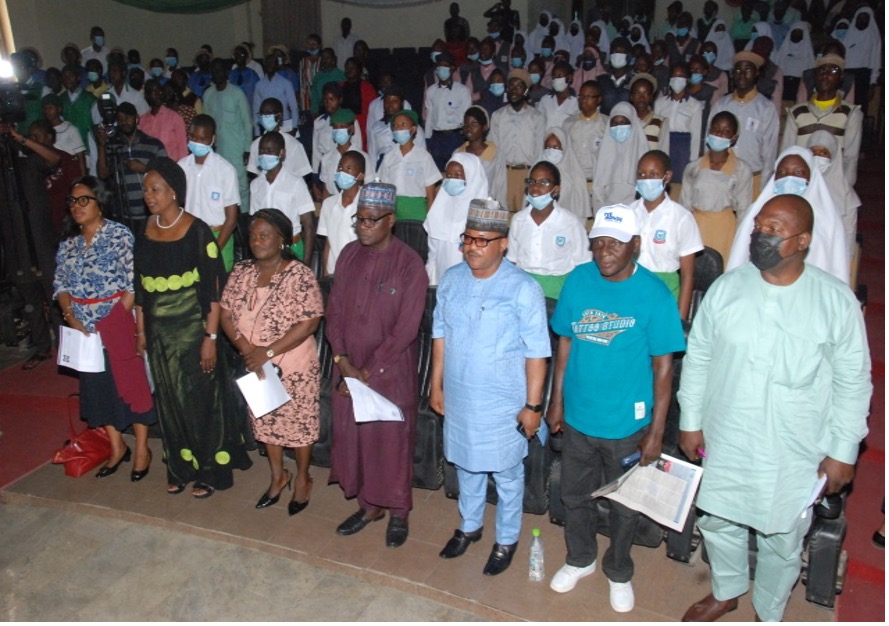Productivity Capacity Building
CONCEPT NOTE /INTRODUCTION
Capacity building is of critical importance to organizations as it plays a vital role in enhancing their effectiveness, efficiency, and sustainability. It refers to the process of developing and strengthening the skills, knowledge, resources, and structures within an organization to enable it to perform at its best and achieve its goals.
Here are some key reasons why capacity building is crucial for organizations:
- Enhanced Performance: Capacity building initiatives help organizations improve their performance by providing employees with the necessary skills and knowledge to carry out their tasks effectively. It enables individuals and teams to acquire new competencies, stay updated with industry trends, and adapt to changing circumstances, leading to increased productivity and overall performance.
- Innovation and Adaptability: Building organizational capacity fosters a culture of innovation and adaptability. By investing in training and development programs, organizations can encourage employees to think creatively, explore new ideas, and embrace change. This enables them to respond effectively to evolving market dynamics and technological advancements.
- Organizational Resilience: Capacity building enhances an organization's resilience by equipping it with the ability to withstand challenges and disruptions. It enables organizations to build robust systems and processes, develop contingency plans, and empower employees to handle unforeseen circumstances. This resilience ensures the sustainability and continuity of operations, even during difficult times.
- Strategic Growth: Capacity building plays a crucial role in supporting an organization's growth strategies. By investing in the development of employees' skills and knowledge, organizations can cultivate leadership talent, foster succession planning, and prepare for future expansion. It helps create a pipeline of skilled professionals who can drive the organization's growth and maintain its competitive edge.
- Effective Resource Management: Capacity building focuses on optimizing the use of resources within an organization. It helps identify gaps and inefficiencies, streamline processes, and leverage existing resources more effectively. By enhancing the skills of employees, organizations can reduce wastage, improve cost-effectiveness, and achieve greater efficiency in operations.
- Stakeholder Engagement: Building organizational capacity involves engaging stakeholders at various levels. It encourages collaboration, partnerships, and knowledge sharing among employees, customers, suppliers, and communities. This collaborative approach helps organizations build stronger relationships, enhance trust, and leverage the collective expertise of stakeholders to achieve shared goals.
- Organizational Culture and Engagement: Capacity building initiatives contribute to the development of a positive organizational culture and employee engagement. By investing in employees' growth and development, organizations show their commitment to their well-being and professional advancement. This leads to increased job satisfaction, higher employee retention, and a more motivated workforce.
It is in the light of the above that the Productivity Capacity Building Department has designed a broad spectrum of programmes and trainings tailored to address both individual and organizational productivity drive.
The importance of Human Capital Development in both the Private and Public Sector through training and skill development, building managerial and operational knowledge, skill, and competencies for Nigerian organizations; strengthen entrepreneurship training with productivity knowledge cannot be over emphasized.
All this is geared towards increasing labor productivity and the overall development of the various organizations and the Nigerian economy.
RATIONALE/RELEVANCE OF THE PROGRAMME
Capacity Building matters a great deal to organizations who share the goal of accomplishing organizational mission and achieving lasting social change. The prospects for success are strengthened when organizations have understandings of what constitutes capacity building, and how best to intervene effectively to develop and strengthen organizational and field-level capacities.
In summary, capacity building is crucial to organizations as it strengthens their performance, fosters innovation, enhances resilience, supports strategic growth, optimizes resource management, facilitates stakeholder engagement, and cultivates a positive organizational culture. By investing in capacity building, organizations can position themselves for long-term success in a dynamic and competitive environment.
TARGET SECTORS/’CLIENTS AND CUSTOMERS
Our Target Participants cut across all sectors of the Economy
IMPLEMENTATION PROCESS/HOW IT WORKS
|
S/N |
PROCESS |
REQUIRED DOCUMENT |
|
1. |
IDENTIFICATION OF TRAINING NEEDS OF ORGANIZATIONS BOTH IN THE PUBLIC AND PRIVATE SECTORS |
Previously Submitted training proposal
|
|
2 |
NATIONAL WORKSHOP/ CONFERENCE ROOM TRAINING PROGRAM TOPIC APPROVAL |
Draft Proposal |
|
3 |
DEVELOPMENT AND SUBMISSION OF WORKSHOP PROPOSAL |
Draft Proposals |
|
4 |
WORKSHOP IMPLEMENTATION |
Papers |
|
5 |
IN-PLANT TRAINING IMPLEMENTATION |
Draft Proposals
|
|
6 |
Review events with participants (Sum up and review agenda; Ask for feedback on the ideas, techniques, methods, etc.) |
Evaluation Forms |
|
7 |
Review and celebrate (a quick “Regret, Celebrate, Learn” process) |
|
|
8 |
Write report
|
Workshop Materials |
|
9 |
Following-up on next training
|
|
IMPACT OF THE PROGRAMME
- Development of Skills and Productive Mindset of Workers.
- To Actualize the Centre Mandate of Productive Information Dissemination.
- The Development of Competencies and Capacities of Workers.
- Dissemination of and Sharing of Critical Knowledge on Productivity Related Matters.






